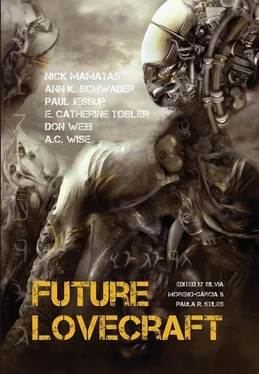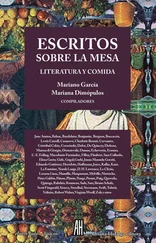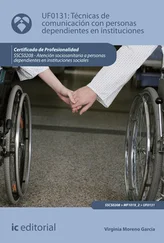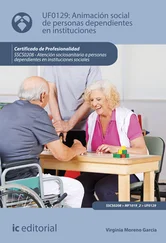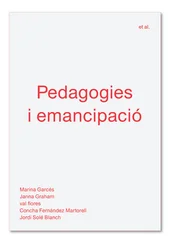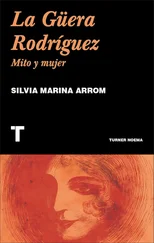“Thanks.” I down my drink in one shot.
The liquor unfolds in my mouth, sending a spike through my lungs. My eyes water. I walk back outside.
It’s dark. The stars are right. But the stars have always been right.
Where would I go if I were Marco? A useless question. He knows what he’s running from—a suffocating life of expectation, his parents’ blind oblivion a shadow pressed between his shoulder blades. Some people can feel the future coming; others refuse to believe in anything but the infinite Now. The future reached out blind tentacles, snaring my heart. Marco chose R’lyeh’s ways; R’lyeh’s ways chose me.
Firelight flickers. A horse whinnies—a soft, breathy sound. The scent of wet leather and dry hay overwhelms me. Lips trace mine, arching my throat, shivering across my belly. I gather sweat on the tip of my tongue, briny-sweet like the sea. The horse’s whicker turns to a scream. My scars tingle, hot and cold at the same time. Fragments tumble, edges sharp like splinters of bone lodged beneath my skin. Some things can’t be outrun, taken, or let go.
Suddenly, I don’t give a fuck about Marco. And I have all the time in the world.
I walk along the water’s edge, where there used to be a restaurant. Once—after R’lyeh, but before now—the entire city burned. The canals turned to oil and fire swept from rooftop to rooftop, sparing nothing.
Centuries of human existence, wiped out in the blink of an eye. I was there. I will be there again.
Venice, as always, survived. It rose from the ashes, born anew in brick and stone and marble, in deference to the old ways. It was also resurrected in glass and steel, in deference to ways old-yet-new. Finally, it shambled back from the dead, with walls that bled and seethed, flickered and writhed, in deference to the way things are now and always will be. Venice—an impossible city, impossible to kill.
I turn inward, crossing a bridge made of glass. A canal creeps, sluggish, beneath it. Lights glimmer on the water’s surface; things sleep in its depths. Venice floats, it sinks, it is drowning, it is drowned. And it survives. So do I.
I’ve been to the underwater city where Venice used to be. I’ve kick-pulled through cathedrals lit by the unearthly, phosphorescent glow of things best left unseen. I’ve worshiped at unholy altars, caressed by tendrils of night, studded by unnatural stars. I’ve witnessed the twisted images of saints spider-walking up church walls, their mouths open in silent screams. I’ve kissed the greened marble lips of the Mary who wept tears that weren’t blood, as she watched the fish nibble her children’s bones. I’ve seen Venice in all its guises, peeked behind all its masks, witnessed all its states of decay. Venice survives, no matter how ugly its scars.
My feet guide me through twisting ways to a little restaurant off Calle Mandola. It’s almost unchanged since the old days, except for the light, and the sick-green smell, and the taste of salt in the air. They still serve a killer martini—an olive and a twist. Inside, the sound hits me like a wall. My heart skitters, painful.
Guilt persists, even when I’ve given up love.
The place is nearly empty, but Josie sings as if the restaurant is full. Her voice is heartbreak: smoke and burnt amber and chocolate so dark it draws blood. It suits the restaurant’s mood, and mine. Waiters move listlessly between tables, bringing baskets of bread, plates of limp vegetables in heavy, oily sauce, and pasta—everything but meat, which ran out long ago, and fish, which is forbidden.
I tried to bring Josie fresh meat once—unspoiled, untainted. She wouldn’t touch it. The thought of anything that had been in-between made her shudder and gag.
I remember—as much as I want to forget—how I held Josie’s hands. Her moss-green eyes glowed with fear. I asked her to trust me. We stepped in-between.
Just as soon, we were jerked back, as if R’lyeh’s ways had spit us out. Josie pulled away from me, the brief touch of otherness enough to shatter her already fragile mind. I followed her back. I could have kept running, but I didn’t even think twice.
We were staying in a hotel next to the theatre on Calle Fenice, in a room with walls the colour of blood, patterned in threads of pale gold and delicate lines of mold. The shower had stopped working long ago, but the toilet still flushed and, against all reason, the sheets were clean. When I stepped out of the between, Josie lay curled on the floor, clinging to the Turkish carpet rucked beneath her folded body as if it were the only thing holding her to this world.
“It burns. Ara, it burns.”
I crouched beside her and touched her, feeling the sharp ridges of her spine through clothing and skin.
“Make it stop.” She rocked and whimpered.
I lifted her sweater, peeling it as though from a wound. Tattoos, inked long before R’lyeh rose, writhed across Josie’s flesh. Black ink against skin the colour of fired clay, lashing, twisting, moving in ways nothing ever should.
“Make it stop. It hurts. Make it stop.” Josie turned her face, just enough to show tears and stark terror.
“I’m sorry,” I told her. “I don’t know how.”
There were so many places I wanted to show her. I wanted to take her deep—somewhere off the coast of Mexico, to another drowned world full of turquoise water and old bones. I wanted to hold her hand, even through thick rubber gloves, and gesture to her through the enforced silence of breathing tubes and masks, hoping she’d understand.
She shuddered at the mere mention and I went alone. I let the stillness envelop me; I drifted. Vast things floated beside me; an eye the size of Luxemburg opened below me in the deep. I should have been terrified, but I felt only peace as it looked into me and through me.
I used to think there were some sins too terrible even for R’lyeh, some offerings the spaces between would always refuse. But in that moment, I understood: Sin is a human concept. I did what I did to remain human. I buried sin deep at my core. I could walk the ways between a hundred, thousand times, and it would never change the deepest, most fundamental part of me.
In the end, I never took Josie anywhere. For a while, I tried to hold her when nightmares shivered beneath her skin, when her tattoos writhed in their own dreams. My touch made it worse.
The day I left, she sat on the hotel bed, head bowed. A red-glass heart from Murano lay cupped in her palm, brilliant as blood. Bubbles ran through its core. I touched it with one finger; the glass was warm from her skin.
“I don’t know why I have this,” she said.
Her eyes held hurt, raw as a wound. Whatever I’d taken from her, trying to guide her through the between, was something I could never replace. Some wounds never heal. I left. I didn’t ask her to forgive me.
Here and now, a ruby spotlight pins Josie—an American girl, singing Southern standards and bluesy jazz in a drowned and drowning city half-way across the world. Her song cuts knife-deep, touches bone. I can’t help remembering the last time we lay, cooling in each others’ sweat, windows open, listening to the crowds leaving the Teatro. The breeze raised goosebumps on her skin, skin the colour of Tuscan hills, of earth, of a time before the Risen Ones.
That was the last time salt tasted good.
Josie’s voice is sandstone, rubbed against my skin. It is coffee, scalding hot and poured into my lap. In the ruby spotlight and the green seeping from the edges of the world, she’s beautiful.
I sip my martini, slid without asking across the bar by the loyal bartender, Lorence. His skin is damp, his eyes as pained as the poor boy who served me in Harry’s Bar. No matter that it hurts him, he still labours to breathe with human lungs, shunning his gills.
Читать дальше
